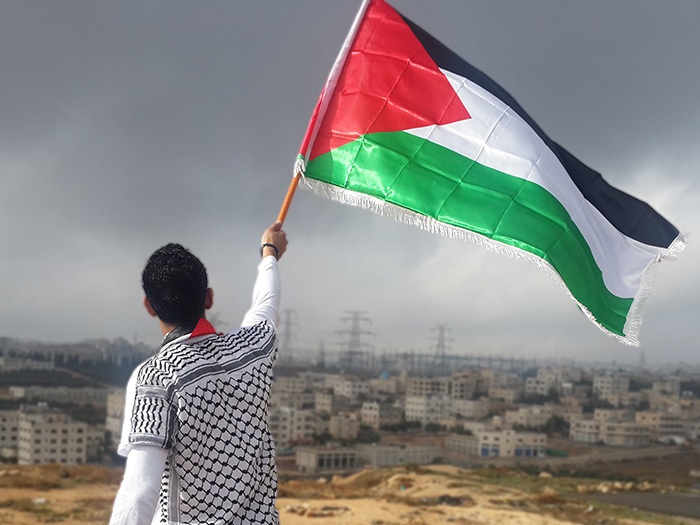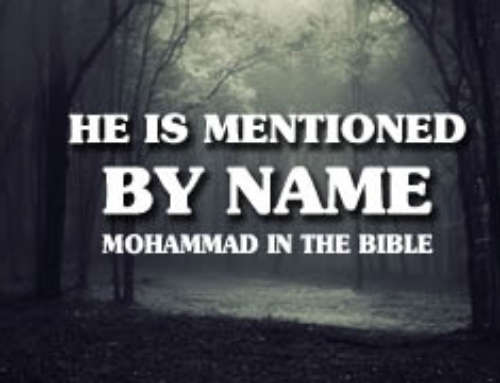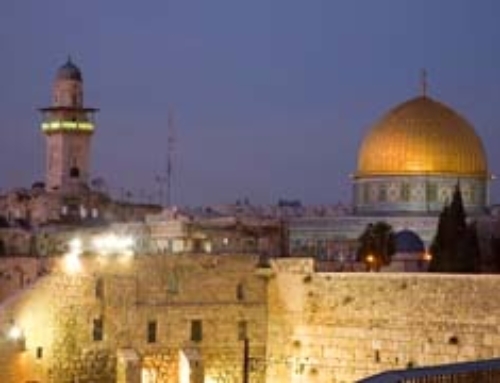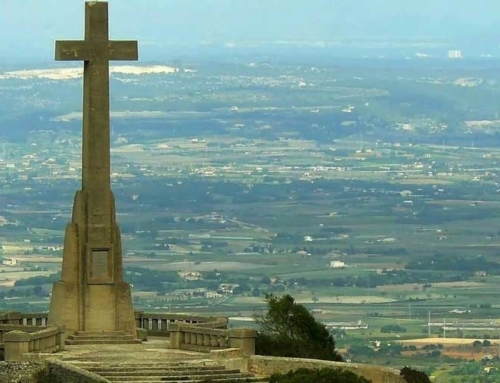The Israeli occupation impacts all Palestinians – Muslim and Christian alike. By standing together in solidarity against discrimination, Palestinian Muslims and Christians provide a model for peaceful coexistence. Palestine is the birthplace of Jesus, peace be upon him. Outside of Christianity, Islam is the only faith that recognizes Jesus, albeit as a Prophet of God. Working together against injustice, Muslims and Christians in Palestine provide a source of inspiration for others around the world.
United Against Injustice
Christians and Muslims have peacefully dwelled together for ages in the holy land of Palestine. Connected by language, culture, and place, they have endured generations of conquerors side by side, whether ruled by Byzantines, British, or now Israelis. In the past month, Israel has destroyed Gaza’s oldest mosque and bombed its oldest Church.
Despite the media portrayal of this conflict being a religious one between Muslims and Jews, the reality is that it is one of justice vs. injustice. The injustice of illegal military occupation and colonization impacts all Palestinians, whether they are Muslim or Christian. Palestinian Muslims and Christians have a long history of harmonious co-existence in cities, villages, and neighborhoods. Interfaith marriages have been commonplace. Church bells ring out alongside the call to prayer from minarets five times a day. In times of celebration or sorrow, everyone partakes in feasts or pays condolences regardless of creed.
However, this diversity also jointly suffers under Israel’s 75-year military occupation denying them self-rule. Occupation security policies disrupt every aspect of daily life. Checkpoints, permits, walls, and discriminatory laws constrain family visits, education, jobs, healthcare, farming, worship, and free movement. Israel’s restrictions on religious freedom to access holy sites in Jerusalem deeply impact all Palestinians and serve as a unifying force between Palestinian Muslims and Christians in their quest for liberation.
For centuries, Jerusalem has been a holy city for Muslims, Christians, and Jews alike. However, Israel has increasingly imposed harsh restrictions that limit Palestinians’ ability to freely worship there. For Muslim Palestinians, their access to the Al-Aqsa Mosque compound, the third holiest site in Islam, has been severely curtailed. Many face restrictions on when they can enter, which gates they can use, and how long they can stay to pray. Christian Palestinians face similar barriers in accessing important churches such as the Church of the Holy Sepulchre. These restrictions by the Israeli authorities deny Palestinians their basic human right to religious freedom. Not only does it impact an individual’s ability to practice their faith, but it represents an assault on Palestinians’ cultural identity and dignity. As a result, it evokes profound sorrow, resentment, and feelings of injustice among Palestinians of all faiths, not just Muslims and Christians.
However, these shared grievances have served as a unifying force between Palestinian Muslims and Christians. Despite tensions in the past, these restrictions on accessing holy sites in Jerusalem have led Muslim and Christian Palestinians to understand one another and unite to call for an end of the colonization of their land. Whether organizing joint humanitarian relief efforts, coordinating nonviolent protests, or raising collective awareness, these efforts represent a shared struggle for religious freedom. It has enabled solidarity around a common cause.
Going forward, Israel’s severe constraints on Palestinians’ religious freedom will continue galvanizing this spirit of unity and peaceful resistance between Palestinian Muslims and Christians in response to profound, far-reaching impacts on Palestinian lives. Ultimately, Palestinians of all faiths deserve open access to holy sites in Jerusalem to pray and uphold their spiritual connection to a city that’s sacred for many.
Defending Religious Freedom
Throughout the Holy Land – from the West Bank and Gaza to Israel proper – Christians play key roles alongside Muslims in grassroots campaigns against occupation injustices. They organize protests together against settlement growth, house demolitions, loss of livelihoods and religious access restrictions.
Christian charities provide food, shelter, and medical aid while Muslim volunteers build clinics and schools. Joint Muslim-Christian centers advocate internationally, document human rights violations and challenge unjust policies in Israeli courts. Prominent Christian clergy publicly endorse peaceful economic pressure through the BDS movement.
One major focus of joint advocacy is defending Palestinian religious freedom in Jerusalem. Under occupation, Israel severely restricts West Bank and Gaza Palestinians from accessing holy sites in Jerusalem through permit regimes, checkpoints, and the separation wall. These constraints deeply impact both faiths.
In response, Christian and Muslim religious leaders have held ecumenical prayer events protesting the lack of access. Christian and Muslim activists organize joint demonstrations against the arbitrary denial of worship rights in the holy city important to both communities.
Archbishop Atallah Hanna – the Holy Sepulcher’s custodian – argues that Christian compassion should extend to all facing oppression, whether Muslim or Jew. For the archbishop and many Palestinian Christians, supporting universal religious freedom goes hand in hand with resisting occupation policies denying such freedoms.
Shared Destiny, Shared Struggle
Fanatical groups elsewhere exploit sectarian divisions to sow hatred. However, the Palestinian Muslim-Christian approach sees beyond tribalism and serves as an inspiration – joining hands with all people of conscience to speak truth to power in the noblest prophetic tradition.
Centuries of shared life and now shared struggle have cultivated an unbreakable bond and co-resistance between Palestinian Muslims and Christians. This solidarity gives the world a glimpse of interfaith harmony in action – an alternative to the narrative of inevitable civilizational clash.
Together in solidarity, Palestinian Muslims and Christians set an example of coexistence in the face of oppression. Their unity against injustice washes away misperceptions and brings understanding between people of all faiths and inspires solidarity with the shared struggle for Palestinian and human rights.
The path forward lies in embracing universal human rights and the implementation of international law. Progress along that path starts with the courage to speak truth in pursuit of justice, equality, and freedom for all peoples – Muslim and Christian alike. Palestinian interfaith solidarity plants the seeds for justice, dignity, and peace in the holy land and beyond.
Got Questions?
We have Answers. Get in touch now.








